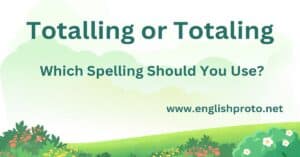High Quality or High-Quality: if you’ve ever hesitated over which version to write, you’re not alone. These two tiny words (and that little hyphen) can completely change the flow and correctness of your writing. And let’s be honest you don’t want your message to lose credibility over something as small as punctuation.
In this guide, you’ll finally get clarity. You’ll discover the simple rules, practical examples, and quick tips that make choosing between “high quality” and “high-quality” effortless. By the end, you won’t just write correctly you’ll write with confidence.
Quick Summary
The correct usage depends on the grammatical function within your sentence:
- “High-quality” (with hyphen): Use when functioning as a compound adjective before a noun
- “High quality” (without hyphen): Use when functioning as a noun phrase or appearing after a linking verb
Meaning: Both forms refer to something that meets elevated standards of excellence, superiority, or superior craftsmanship.
Key Takeaways
- Hyphenate “high-quality” when it directly modifies a noun (e.g., “high-quality products”)
- Use “high quality” without a hyphen when it stands alone or follows linking verbs (e.g., “The products are high quality”)
- The hyphen creates unity between “high” and “quality,” making them function as a single descriptive unit
- Consistency in usage demonstrates grammatical competence and attention to detail
- Context determines the correct form, not personal preference
Reasons for Confusion: High Quality or High-Quality
Several factors contribute to the widespread confusion surrounding “high quality” versus “high-quality”:
Pronunciation Consistency
Both forms sound identical when spoken aloud, creating no audible distinction that might guide writers toward the correct written form. This phonetic similarity means that many people never realize there should be different written versions for different grammatical contexts.
Informal Communication Habits
In casual digital communication texts, social media posts, and informal emails hyphenation rules are often ignored or overlooked. This relaxed approach to punctuation in informal settings can create habits that inadvertently carry over into professional and academic writing contexts.
Inconsistent Examples in Media
Publications, websites, and even professional documents sometimes exhibit inconsistent hyphenation practices. When readers encounter mixed usage across different sources, it becomes challenging to determine which form is correct, leading to uncertainty and inconsistent personal usage.
Complex Grammatical Rules
The underlying grammatical principle understanding when words function as compound adjectives versus noun phrases represents a more advanced concept that many writers haven’t explicitly studied. Without this foundational understanding, the choice between hyphenated and non-hyphenated forms appears arbitrary.
Similar Compound Words
English contains numerous compound adjectives that follow the same hyphenation rules (such as “state-of-the-art,” “well-known,” and “long-term”), but also many exceptions and irregular forms. This complexity can make writers uncertain about applying consistent rules across different compound constructions.
Detailed Explanation: High Quality or High-Quality
Understanding the correct usage of “high quality” versus “high-quality” requires grasping the concept of compound adjectives and their grammatical function within sentences.
Compound Adjectives: The Foundation
A compound adjective combines two or more words to create a single descriptive unit that modifies a noun. When these words work together before a noun, they typically require hyphenation to signal their unified function to readers. The hyphen serves as a grammatical bridge that connects the individual words into one cohesive modifier.
When to Use “High-Quality” (With Hyphen)
Use the hyphenated form “high-quality” when it functions as a compound adjective directly preceding and modifying a noun:
Pattern: high-quality + noun
In these constructions, “high” modifies “quality,” and together they modify the following noun. The hyphen prevents misreading and clarifies the relationship between all three elements.
⚡ Quick Tip: If you can place the phrase directly before a noun and it makes sense as a single descriptive concept, use the hyphen.
When to Use “High Quality” (Without Hyphen)
Use the non-hyphenated form “high quality” in these situations:
- After linking verbs (is, are, was, were, seems, appears, etc.)
- As a noun phrase standing independently
- When “quality” functions as the main noun being described by “high”
Pattern: Subject + linking verb + high quality
In these constructions, “high quality” doesn’t function as a compound adjective but rather as a predicate nominative or standalone noun phrase.
The Grammar Behind the Rule
The fundamental grammatical principle involves understanding adjectival versus nominal functions:
- Adjectival function: When “high-quality” modifies another noun, it requires hyphenation to show unity
- Nominal function: When “high quality” serves as the subject complement or main concept, no hyphen is needed
| Function | Form | Example |
|---|---|---|
| Compound Adjective | high-quality | “We sell high-quality furniture” |
| Predicate Nominative | high quality | “Our furniture is high quality” |
| Noun Phrase | high quality | “High quality costs more” |
Advanced Considerations
Position-Dependent Rules: The same words can require different treatments based solely on their position within a sentence. This position-dependency reflects English grammar’s emphasis on word relationships and sentence structure rather than absolute word forms.
Reader Clarity: The hyphen serves readers by immediately signaling that multiple words should be processed as a single conceptual unit. Without proper hyphenation, readers might momentarily parse “high quality products” as “high” + “quality products,” creating brief confusion before context clarifies the intended meaning.
Common Errors
Understanding frequent mistakes helps writers avoid these pitfalls and develop more consistent usage patterns.
Error 1: Overusing Hyphens
Incorrect: “The product’s quality is high-quality” Correct: “The product’s quality is high quality”
Explanation: After linking verbs, compound adjectives don’t require hyphenation because they’re not directly modifying a following noun.
Error 2: Omitting Necessary Hyphens
Incorrect: “We specialize in high quality electronics” Correct: “We specialize in high-quality electronics”
Explanation: When directly modifying “electronics,” the compound adjective requires hyphenation for clarity and correctness.
Error 3: Inconsistent Usage Within Documents
Problematic: Using both forms randomly throughout the same document without regard to grammatical function.
Solution: Establish consistency by applying the grammatical rule systematically throughout your writing.
Error 4: Confusion with Other Compound Forms
Incorrect: “This is a high quality-product” Correct: “This is a high-quality product”
Explanation: The hyphen connects “high” and “quality,” not “quality” and “product.”
Error 5: Misunderstanding Adverb Modifications
Incorrect: “These extremely high-quality products” Correct: “These extremely high-quality products” ✓
Note: When adverbs (like “extremely”) modify compound adjectives, the hyphen remains because the compound adjective relationship stays intact.
Synonyms and Alternatives: High Quality or High-Quality
While “high quality” and “high-quality” serve specific grammatical functions, various alternatives can provide stylistic variety:
Direct Synonyms
- Superior (quality/products)
- Premium (quality/products)
- Excellent (quality/products)
- Top-grade (compound adjective form)
- First-rate (compound adjective form)
Context-Specific Alternatives
| Context | Compound Adjective Form | Predicate Form |
|---|---|---|
| Luxury goods | “luxury-grade products” | “products are luxury grade” |
| Professional services | “professional-grade equipment” | “equipment is professional grade” |
| Manufacturing | “precision-engineered components” | “components are precision engineered” |
| Academic writing | “peer-reviewed research” | “research is peer reviewed” |
Formal Alternatives
- Exceptional standards
- Superior craftsmanship
- Distinguished excellence
- Elevated standards
⚡ Quick Tip: When choosing alternatives, maintain the same grammatical pattern—if you need a compound adjective, choose compound alternatives; if you need a noun phrase, select noun phrase alternatives.
Examples in Sentences: High Quality or High-Quality
Seeing correct usage in context reinforces understanding and provides practical application models.
Correct Usage: High-Quality (Compound Adjective)
- “The company manufactures high-quality automotive parts for luxury vehicles.”
- “Investors seek high-quality bonds during uncertain economic periods.”
- “Our high-quality customer service distinguishes us from competitors.”
- “High-quality education requires substantial investment in resources and training.”
- “The restaurant sources high-quality ingredients from local organic farms.”
- “High-quality photography demands both technical skill and artistic vision.”
- “We provide high-quality translation services for multinational corporations.”
- “High-quality healthcare remains a fundamental concern for policymakers.”
Correct Usage: High Quality (Noun Phrase/Predicate)
- “The products we manufacture are high quality and reasonably priced.”
- “High quality doesn’t always correlate with higher prices.”
- “Customers increasingly demand high quality across all product categories.”
- “The materials appear to be high quality based on initial inspection.”
- “Their reputation for high quality spans several decades of operation.”
- “High quality requires continuous attention to detail and process improvement.”
- “The craftsmanship seems high quality, though we need professional assessment.”
- “Achieving high quality demands commitment from every team member.”
Advanced Context Examples
Business Writing: “Our high-quality manufacturing processes ensure that every product meets high quality standards before shipment.”
Academic Writing: “The study’s high-quality methodology produced results that demonstrate high quality across multiple measurement parameters.”
Marketing Copy: “Experience high-quality service that reflects our commitment to high quality in every customer interaction.”
Origins and History: High Quality or High-Quality
The hyphenation of compound adjectives in English follows patterns established over centuries of language evolution, with specific rules codified during the standardization of English grammar in the 18th and 19th centuries.
Historical Development
Middle English Period (1100-1500): Early compound constructions appeared without standardized hyphenation, as punctuation systems remained inconsistent and varied significantly across regions and scribes.
Early Modern English (1500-1700): As printing standardized, punctuation rules began emerging, though hyphenation practices remained irregular and often dependent on individual printers’ preferences.
Modern Standardization (1700-1900): Grammar authorities like Samuel Johnson and later prescriptive grammarians established systematic rules for compound adjective hyphenation, creating the framework modern English follows.
Linguistic Principles
The hyphenation rule reflects English’s analytic nature—its tendency to use word position and punctuation rather than inflection to indicate grammatical relationships. Unlike synthetic languages that modify word endings to show function, English relies heavily on these positional and punctuation cues.
Compound Formation: English readily creates new compounds by combining existing words, making hyphenation rules essential for clarity as the language continues evolving and incorporating new compound constructions.
Contemporary Evolution
Modern digital communication has introduced new challenges to traditional hyphenation rules. Style guides increasingly address questions about compound adjectives in:
- URLs and web addresses
- Hashtags and social media
- Search engine optimization
- International English variants
⚡ Quick Tip: While informal digital communication may relax hyphenation rules, professional and academic contexts still require adherence to standard grammatical practices.
Conclusion: High Quality or High-Quality
Mastering the distinction between “high quality” and “high-quality” represents more than memorizing a simple rule it demonstrates understanding of fundamental English grammar principles that apply across countless similar constructions.
The key lies in recognizing grammatical function: use “high-quality” when creating compound adjectives that directly modify nouns, and use “high quality” when the phrase serves as a noun phrase or predicate.
Grammatical precision goes beyond correctness it shapes professionalism, clarity, and credibility. In professional contexts, proper hyphenation shows attention to detail; in academic writing, it reflects linguistic sophistication; and in everyday communication, it prevents confusion.
The hyphen in compound adjectives like “high-quality” unites words into cohesive descriptors, ensuring smooth readability. Mastering this rule not only clarifies “high quality/high-quality” but also equips you to handle countless similar constructions.
Consistency is just as vital as correctness; maintaining it strengthens your authority. By practicing and internalizing these patterns, you build grammatical intuition, empowering confident, polished expression across all forms of writing.



